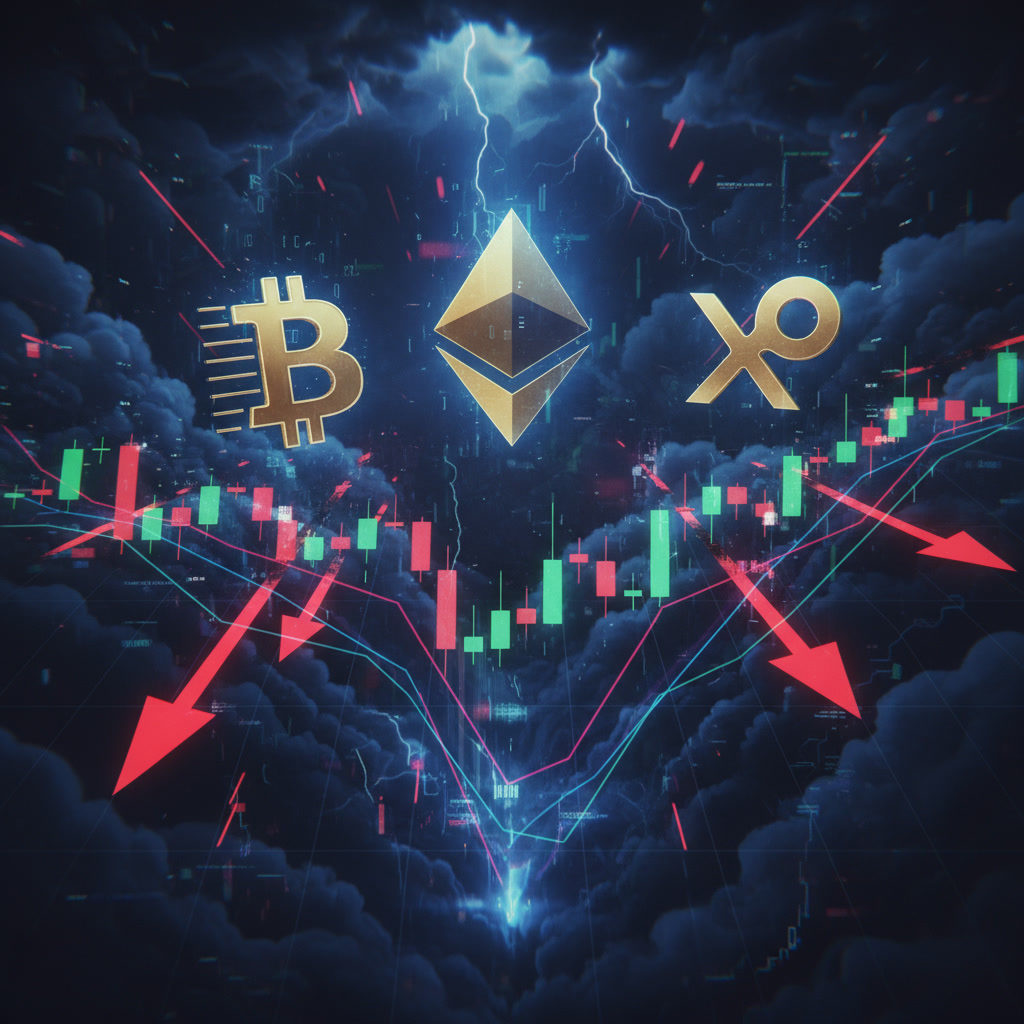The Real-Life Applications of Crypto in 2025: A Deep Dive
Table of Contents
-
Introduction: Crypto’s Journey from Speculation to Utility
-
Payments and Remittances
-
Banking the Unbanked & Financial Inclusion
-
Decentralized Finance (DeFi): Beyond Traditional Banking
-
Stablecoins: Everyday Money for a Digital Age
-
Real-World Asset Tokenization
-
Supply Chain and Logistics
-
Digital Identity and Privacy
-
NFTs: Beyond Art – Ownership, Tickets, and Credentials
-
Gaming and the Metaverse
-
Social Media, Content, and Creator Economies
-
Charities, Philanthropy, and Social Impact
-
Government and Public Sector Use Cases
-
Healthcare and Medical Records
-
Energy, Environment & Carbon Markets
-
Real Estate and Property Transactions
-
Insurance and Risk Management
-
Cross-Border Trade and Global Commerce
-
Education and Certification
-
Voting and Governance
-
The Future: What’s Next for Crypto Applications?
-
Frequently Asked Questions (FAQ)
-
Conclusion: Crypto’s Expanding Role in Everyday Life
1. Introduction: Crypto’s Journey from Speculation to Utility
In the early years, cryptocurrencies were seen largely as speculative assets or “digital gold.” By 2025, the narrative has shifted dramatically. Blockchain and crypto are now powering real-world solutions, improving transparency, efficiency, and access across industries. Let’s explore how.
2. Payments and Remittances
Fast, Cheap, and Borderless
-
International Remittances: Crypto enables instant, low-fee transfers across borders, bypassing banks and remittance companies. Migrant workers send money home in minutes, not days.
-
Everyday Payments: From cafes in Berlin to street vendors in Lagos, merchants accept crypto via QR codes, NFC, or crypto debit cards.
-
Micropayments: Streaming payments for content, tipping, or in-app purchases are now viable with lightning-fast networks like Bitcoin’s Lightning or Solana.
Example:
El Salvador’s Chivo Wallet processes millions of Bitcoin transactions for daily purchases and remittances.
3. Banking the Unbanked & Financial Inclusion
-
Access for All: Billions without traditional bank accounts can now store, send, and receive value using just a smartphone and crypto wallet.
-
DeFi Lending: Peer-to-peer lending platforms allow users to borrow and lend without credit checks or banks.
Example:
In Nigeria and Kenya, stablecoins and mobile crypto wallets provide a financial lifeline amid inflation and banking restrictions.
4. Decentralized Finance (DeFi): Beyond Traditional Banking
-
Lending & Borrowing: Platforms like Aave and Compound let users earn interest or access loans, all on-chain.
-
Decentralized Exchanges (DEXs): Swap tokens instantly without intermediaries.
-
Yield Farming & Staking: Users earn passive income by providing liquidity or securing networks.
Example:
A farmer in India uses DeFi protocols to access microloans for seeds, bypassing predatory lenders.
5. Stablecoins: Everyday Money for a Digital Age
-
Price Stability: USDT, USDC, and other stablecoins are pegged to fiat currencies, making them ideal for daily transactions and savings in volatile economies.
-
Programmable Money: Automate payroll, subscriptions, or escrow payments with smart contracts.
Example:
Argentinians use stablecoins to protect savings from inflation and pay for goods online.
6. Real-World Asset Tokenization
-
Fractional Ownership: Real estate, art, and even stocks are tokenized, lowering barriers to entry.
-
Liquidity: Tokenized assets can be traded 24/7 on global markets.
Example:
A $10 million office building is split into 10,000 tokens, allowing anyone to invest for as little as $1,000.
7. Supply Chain and Logistics
-
Transparency: Track goods from origin to shelf, reducing fraud and counterfeiting.
-
Efficiency: Automated payments and smart contracts streamline shipping and customs.
Example:
Walmart uses blockchain to trace food products, reducing recall times from days to seconds.
8. Digital Identity and Privacy
-
Self-Sovereign Identity: Users control their data and credentials, sharing only what’s necessary.
-
Privacy Coins: Monero, Zcash, and zero-knowledge proofs protect user privacy in transactions.
Example:
Students use blockchain-based IDs to prove credentials to employers without revealing sensitive data.
9. NFTs: Beyond Art – Ownership, Tickets, and Credentials
-
Digital Ownership: NFTs prove ownership of digital goods, music, videos, and more.
-
Event Tickets: Blockchain-based tickets prevent scalping and fraud.
-
Academic Credentials: Universities issue diplomas as NFTs, instantly verifiable worldwide.
Example:
A music artist sells limited-edition album NFTs, granting buyers special access and royalties.
10. Gaming and the Metaverse
-
Play-to-Earn: Gamers earn crypto and NFTs by playing, creating new income streams.
-
Interoperable Assets: Skins, weapons, and avatars move across games and platforms.
-
Virtual Real Estate: Users buy, sell, and develop land in virtual worlds like Decentraland.
Example:
A gamer in the Philippines supports their family through play-to-earn games and NFT trading.
11. Social Media, Content, and Creator Economies
-
Decentralized Social Platforms: Lens Protocol, Farcaster, and other reward creators directly.
-
No Middlemen: Fans tip, subscribe, or buy content using crypto, with creators keeping most of the revenue.
Example:
A YouTuber receives instant, borderless payments from fans worldwide, bypassing traditional ad networks.
12. Charities, Philanthropy, and Social Impact
-
Transparent Donations: Donors track funds on-chain, ensuring they reach intended recipients.
-
Crypto Fundraising: NGOs accept crypto donations, expanding their reach.
Example:
During disasters, aid organizations distribute stablecoins directly to affected families’ wallets.
13. Government and Public Sector Use Cases
-
CBDCs (Central Bank Digital Currencies): Countries like China and Nigeria launch digital currencies for efficient payments and financial inclusion.
-
Land Registries: Blockchain secures property titles, reducing fraud and disputes.
-
Welfare Payments: Governments distribute aid directly to citizens’ wallets.
Example:
The Bahamas’ Sand Dollar enables instant, low-cost payments across islands.
14. Healthcare and Medical Records
-
Secure Records: Patients control access to their medical data, improving privacy and interoperability.
-
Supply Chain: Track pharmaceuticals to prevent counterfeits.
Example:
Hospitals in Estonia use blockchain for secure, interoperable patient records.
15. Energy, Environment & Carbon Markets
-
Green Energy Credits: Tokenized carbon credits and renewable energy certificates.
-
Peer-to-Peer Energy Trading: Households sell excess solar power directly to neighbors.
Example:
A German neighborhood uses blockchain to manage and trade solar energy locally.
16. Real Estate and Property Transactions
-
Faster Settlements: Smart contracts automate escrow, title transfer, and payments.
-
Global Access: International buyers invest in property via tokenized shares.
Example:
A buyer in Singapore purchases a share of a London apartment using a real estate token platform.
17. Insurance and Risk Management
-
Parametric Insurance: Smart contracts trigger payouts automatically based on real-world data (eg, weather, flight delays).
-
Decentralized Insurance Pools: Users pool funds to insure against hacks or smart contract failures.
Example:
African farmers receive instant drought insurance payouts via blockchain oracles.
18. Cross-Border Trade and Global Commerce
-
Faster Settlements: Payments and letters of credit settle in minutes, not days.
-
Reduced Costs: Lower fees and fewer intermediaries.
Example:
A small business in Vietnam exports goods to Europe, receiving instant payment in stablecoins.
19. Education and Certification
-
Tamper-Proof Diplomas: Academic credentials issued on blockchain, instantly verifiable.
-
Micro-Credentials: Learners earn badges and certificates for skills, stored in a digital wallet.
Example:
A software developer shares a blockchain-verified portfolio of skills with employers worldwide.
20. Voting and Governance
-
Transparent Elections: Blockchain voting reduces fraud and increases trust.
-
DAO Governance: Decentralized Autonomous Organizations allow token holders to vote on project decisions.
Example:
A city pilots blockchain-based voting for local elections, increasing turnover and transparency.
21. The Future: What’s Next for Crypto Applications?
-
AI and Blockchain: Autonomous agents, AI marketplaces, and smart contracts.
-
Interoperability: Seamless movement of assets and data across blockchains.
-
Mass Adoption: More governments, businesses, and individuals using crypto daily.
22. Frequently Asked Questions (FAQ)
Q: Is crypto really used for everyday purchases?
A: Yes! In many countries, crypto is used for groceries, bills, and online shopping—especially where fiat is unstable.
Q: Are NFTs just for art?
A: No. NFTs are used for credentials, ticketing, gaming, and even real estate.
Q: How can crypto help the unbanked?
A: Crypto wallets require only a smartphone, offering financial services to those without access to banks.
Q: Is blockchain voting secure?
A: When implemented correctly, blockchain voting can be more secure and transparent than traditional systems.
23. Conclusion: Crypto’s Expanding Role in Everyday Life
By 2025, crypto and blockchain have moved far beyond speculation. They are solving real problems, empowering individuals, and transforming industries from finance to healthcare, energy to education. As adoption accelerates, the number of real-life applications will only grow-making crypto an increasingly integral part of our daily lives.
Ready to start your cryptocurrency journey?
If you’re interested in exploring the world of crypto trading, here are some trusted platforms where you can create an account:
- Binance – The world’s largest cryptocurrency exchange by volume.
- Bybit – A top choice for derivatives trading with an intuitive interface.
- OKX – A comprehensive platform featuring spot, futures, DeFi, and a powerful Web3 wallet.
- KuCoin – Known for its vast selection of altcoins and user-friendly mobile app.
These platforms offer innovative features and a secure environment for trading and learning about cryptocurrencies. Join today and start exploring the opportunities in this exciting space!

Join our crypto community for news, discussions, and market updates: CryptoBCC on Telegram.

Disclaimer: Always do your own research (DYOR) and ensure you understand the risks before making any financial decisions.




